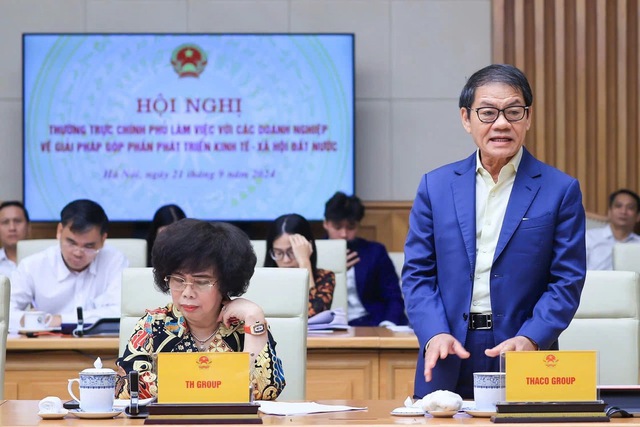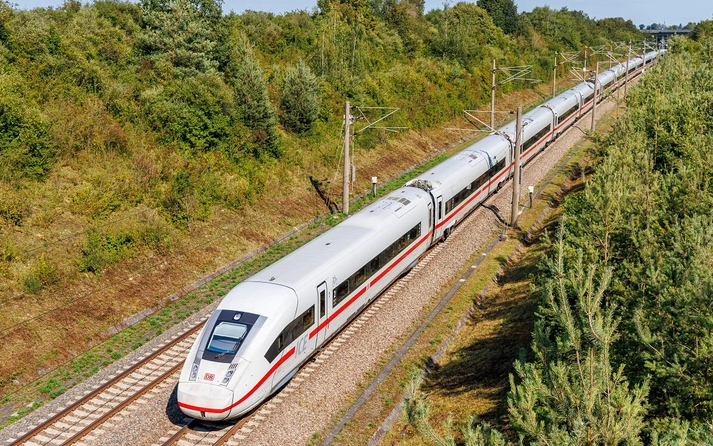
THACO’s board chairman Tran Ba Duong addresses a conference. Photo: Tuoi Tre
In its proposal sent to Prime Minister Pham Minh Chinh and Deputy Prime Minister Tran Hong Ha, THACO plans to invest approximately US$61.35 billion in the project.
Of the total amount, 20 percent, or about $12.27 billion, will come from the company’s own capital and legally mobilized domestic sources.
THACO will borrow the remaining 80 percent, or around $49.08 billion, from domestic and international credit institutions, requesting the central government to guarantee the loans and subsidize interest rates for 30 years.
The company asserted that it will not transfer the project, capital, or shares to foreign investors to ensure national security, safety, and technology sovereignty.
It suggested the project be built in two phases over seven years, prioritizing passenger-heavy segments first.
In the first phase, two segments identified as having high passenger and cargo demand---Ho Chi Minh City-Nha Trang and Hanoi-Ha Tinh---would be built and put into operation within five years.
The second phase will involve the construction of the remaining segment from north-central Ha Tinh Province to Nha Trang City of south-central Khanh Hoa Province in two years due to its complex terrain requiring detailed study.
THACO aims to complete the entire line in seven years, ensuring progress while allowing domestic firms to learn and adopt new technologies, ultimately achieving independence.
The company also requested preferential policies, including making land clearance a separate, state-handled project, prioritizing land around stations for TOD (transit-oriented development) urban development, and exempting import taxes on domestically unavailable equipment.
THACO’s board chairman Tran Ba Duong said that the company’s ambition is not only to invest in a railway line but to collaborate with the Vietnamese state in developing railway, metallurgy, mechanical engineering, digital industries, and other foundational sectors for sustainable, resilient national growth.
He also committed to keeping ticket prices affordable and is open to full state takeover of the project in special national security circumstances.
What sets THACO’s proposal apart is its emphasis on domestic railway industry development.
Leveraging its mechanical manufacturing base in Quang Nam Province, central Vietnam, THACO INDUSTRIES, a mechanics and supporting industries business under THACO, will collaborate with local companies to transfer technology, manufacture locomotives, coaches, and operating equipment, as well as establish new supporting mechanical industrial zones in southern Binh Duong Province and northern Bac Ninh Province.
THACO also pledged to build exemplary TOD urban areas which will feature shopping centers, schools, hospitals, and parks to boost socio-economic growth around railway stations.
Earlier this month, VinSpeed High-Speed Rail Investment and Development JSC also announced its registration to invest in the North–South express railway project, with a proposed total investment of over $60 billion.



Max: 1500 characters
There are no comments yet. Be the first to comment.